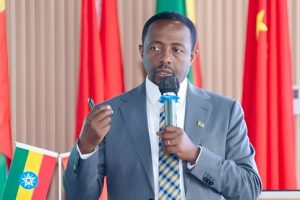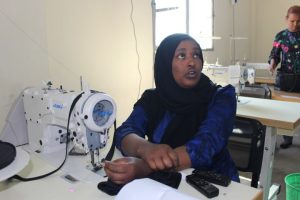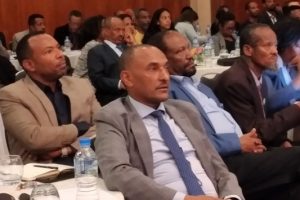BY STAFF REPORTER
Africa has been suffering the worst consequences of climate change. This has been a widely held fact for a long time. Similar reports indicate that there are still many backdrops in committing resources and hitting the set targets.
For instance, a report from African Economic Commission (ECA) says many African countries are not in a position to meet the goals set in the Sustainable Development Goals (SDGs) by 2030. According to a press release sent to ENA, ECA Technology, Climate Change and Natural Resource Management Director Jean-Paul Adam said most of the African countries impacted by the COVID-19 pandemic will not be able to achieve the SDGs set for 2030.
In addition to the lack of commitment for effective implementation of the Agenda by many African countries in an integrated way and collaboration with concerned stakeholders, the pandemic exacerbated deeply entrenched vulnerabilities, gaps, and inequalities within the countries, the director noted.
Coronavirus has severely tested the social, economic, political, and environmental resilience, exacting a massive toll on the poor and most vulnerable and jeopardizing decades of hard-won development gains, especially to the African countries.
“The COVID-19 crisis is playing out against the backdrop of hitherto unseen climate change and biodiversity loss,” Adam said, emphasizing that the climate crisis should not be treated as distinct from the health and economic crises instigated by the pandemic because the three crises and their solutions are interconnected.
To achieve the agenda, Adam stressed the importance of reconstructing socio-economic systems by leveraging opportunities presented by green and low carbon development trajectories to build a resilient, inclusive and sustainable Africa.
According to The Africa Report, last year, the World Meteorological Organization (WMO) reinforced the urgency of the crisis after it found that African countries were spending between 2% and 9% of their GDP on climate adaption and mitigation. Extreme heat, drought and changes in rainfall will continue over the next few decades as the planet warms.
The WMO’s worst-case scenario forecasts warming of 4°C by the end of the century, putting Africa’s average GDP by between 7 per cent and 12 per cent: crop yields would decline by 13 per cent in West and Central Africa and by 8 per cent in East and Southern Africa.
More moderate warming would cut average growth in Africa by between 3 per cent and 8 per cent. The UN Food and Agriculture Organization says the number of undernourished people in drought-prone countries has increased by 45 per cent since 2012.
For many reasons, 2021 will start the final battle for the climate. As governments at the dawning of the pandemic came under irresistible pressure to lock down their economies, leaders of the biggest economies have to face the threat of environmental destruction in the same spirit.
The Africa Report further elaborates that finance remains the major challenge to climate action in Africa. It indicated that Article 9 of the Paris Agreement requires developed country-parties to provide financial resources to assist in developing country-parties concerning both mitigation and adaptation, in continuation of their existing obligations under the Convention. Other Parties are encouraged to provide or continue to provide such support voluntarily.
Global climate finance has reached record levels in recent years. The average annual public climate finance totalled USD253bn in 2017/18, representing 44 per cent of total commitments. Private finance, which reached $326bn on average annually in 2017/18, continues to account for the majority of climate finance, at around 56 per cent.
Climate finance of USD 100 billion a year and green technologies for mitigation actions promised in 2009 under the Paris agreement are still “not on the table” for developing countries, India’s Environment Minister Prakash Javadekar told the country’s Parliament recently.
At the 15th Conference of Parties (COP15) of the United Nations Framework Convention on Climate Change (UNFCCC) in 2009, developed countries had committed to mobilizing jointly USD 100 billion a year in climate finance by 2020 to address the needs of developing countries. This commitment has, since then, been a key element of the international climate negotiations.
The report further argues that with the world on track to 3.5 – 4 degrees Celsius warming by 2100, the cost of adaptation for Africa could reach $50bn by the 2070s. It is important for African countries, under the auspices of the African Union, to have a unified voice at COP26.
African negotiators at COP26 must press for more funds to adapt to the impact of climate change. They must ensure that developed countries do not merely redirect resources previously earmarked for other environmental and development areas to climate change, but that developed countries should provide new and additional financial resources, as stated in Article 4 of the UN Framework Convention on Climate Change (UNFCCC). Efforts to qualify assistance towards combating the Covid-19 pandemic as climate finance must be resisted.
Africa should insist that major carbon emitters make significant cuts in their emissions in their NDCs to prevent dangerous warming and the occurrence of extreme weather and climate events.
The Ethiopian Herald March 17/2021





